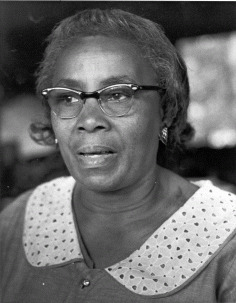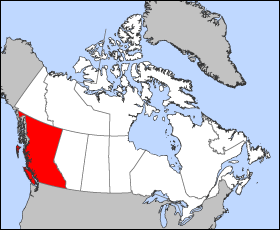The Springfield Plan was a widely publicized intergroup, or intercultural, education policy initiative of the 1940s which was implemented in the public school system of Springfield, Massachusetts. The Plan was the brainchild of Teachers College, Columbia University Associate Professor Clyde R. Miller and his Institute for Propaganda Analysis (IPA). The initiative was the subject of several books, numerous scholarly articles in academic journals, and a Warner Bros. short film [1] starring Andrea King.

Springfield is a city in the state of Massachusetts, United States, and the seat of Hampden County. Springfield sits on the eastern bank of the Connecticut River near its confluence with three rivers: the western Westfield River, the eastern Chicopee River, and the eastern Mill River. As of the 2010 Census, the city's population was 153,060. As of 2017, the estimated population was 154,758, making it the third-largest city in Massachusetts, the fourth-most populous city in New England after Boston, Worcester, and Providence, and the 12th-most populous in the Northeastern United States. Metropolitan Springfield, as one of two metropolitan areas in Massachusetts, had a population of 692,942 as of 2010.

Teachers College, Columbia University is a graduate school of education, health and psychology in New York City. Founded in 1887, it has served as the Faculty and Department of Education of Columbia University since its affiliation in 1898. Teachers College is the oldest and largest graduate school of education in the United States.

Clyde Raymond Miller was an Associate Professor of Education at Teachers College, Columbia University who co-founded the Institute for Propaganda Analysis with Edward A. Filene and Kirtley F. Mather in 1937.
Following the publicity it received, the plan became the national model for citizenship and multicultural education during World War II, and school administrators throughout the U.S. traveled to Springfield to witness the plan in action.
Citizenship education is taught in schools, as an academic subject similar to politics or sociology.
Multicultural education is a set of educational strategies developed to assist teachers when responding to the many issues created by the rapidly changing demographics of their students. It provides students with knowledge about the histories, cultures, and contributions of diverse groups; it assumes that the future society is pluralistic. It draws on insights from a number of different fields, including ethnic studies and women studies, and reinterprets content from related academic disciplines. It is also viewed as a way of teaching that promotes the principles of inclusion, diversity, democracy, skill acquisition, inquiry, critical thought, value of perspectives, and self-reflection. This method of teaching is found to be effective in promoting educational achievements among immigrants students and is thus attributed to the reform movement behind the transformation of schools.

World War II, also known as the Second World War, was a global war that lasted from 1939 to 1945. The vast majority of the world's countries—including all the great powers—eventually formed two opposing military alliances: the Allies and the Axis. A state of total war emerged, directly involving more than 100 million people from over 30 countries. The major participants threw their entire economic, industrial, and scientific capabilities behind the war effort, blurring the distinction between civilian and military resources. World War II was the deadliest conflict in human history, marked by 50 to 85 million fatalities, most of whom were civilians in the Soviet Union and China. It included massacres, the genocide of the Holocaust, strategic bombing, premeditated death from starvation and disease, and the only use of nuclear weapons in war.
The widely stated purpose of the plan was to foster democracy and eliminate racism from schooling. It involved innovative advances in curriculum, including the use of cooperative learning and democratic living classroom activities. Students also participated in projects where they learned about the history and culture of other groups in their broader community. Beyond the school, the plan expanded education into local factories where adult workers were provided with citizenship classes. Lastly, it included new methods for teaching students how to recognize racist propaganda, while it was also innovative in producing positive propaganda, publicizing the advantages of intergroup education for the entire nation.

Democracy is a system of government where the citizens exercise power by voting. In a direct democracy, the citizens as a whole form a governing body and vote directly on each issue. In a representative democracy the citizens elect representatives from among themselves. These representatives meet to form a governing body, such as a legislature. In a constitutional democracy the powers of the majority are exercised within the framework of a representative democracy, but the constitution limits the majority and protects the minority, usually through the enjoyment by all of certain individual rights, e.g. freedom of speech, or freedom of association. "Rule of the majority" is sometimes referred to as democracy. Democracy is a system of processing conflicts in which outcomes depend on what participants do, but no single force controls what occurs and its outcomes.

Racism is the belief in the superiority of one race over another, which often results in discrimination and prejudice towards people based on their race or ethnicity. The use of the term "racism" does not easily fall under a single definition.

In education, a curriculum is broadly defined as the totality of student experiences that occur in the educational process. The term often refers specifically to a planned sequence of instruction, or to a view of the student's experiences in terms of the educator's or school's instructional goals. In a 2003 study, Reys, Reys, Lapan, Holliday, and Wasman refer to curriculum as a set of learning goals articulated across grades that outline the intended mathematics content and process goals at particular points in time throughout the K–12 school program. Curriculum may incorporate the planned interaction of pupils with instructional content, materials, resources, and processes for evaluating the attainment of educational objectives. Curriculum is split into several categories: the explicit, the implicit, the excluded, and the extracurricular.
In 1971 a doctoral student at Teachers College, Columbia University viewed The Springfield Plan in retrospect. [2]









